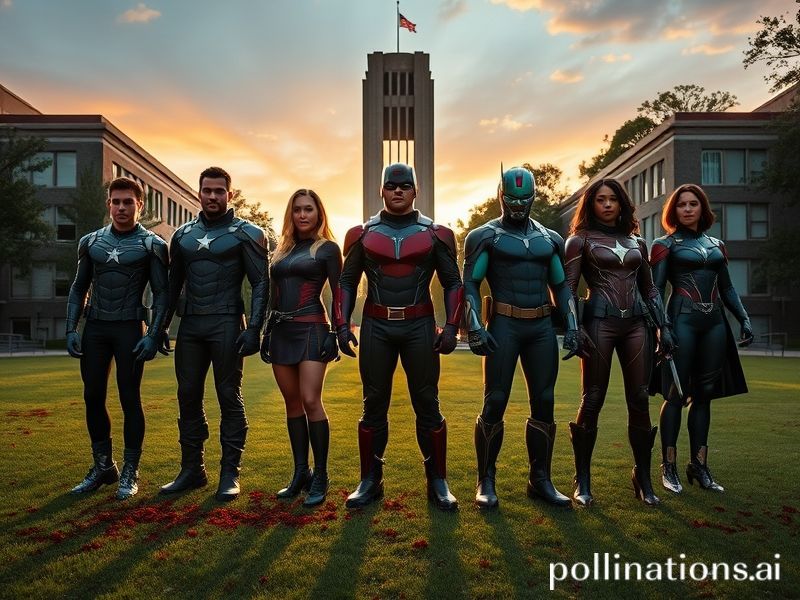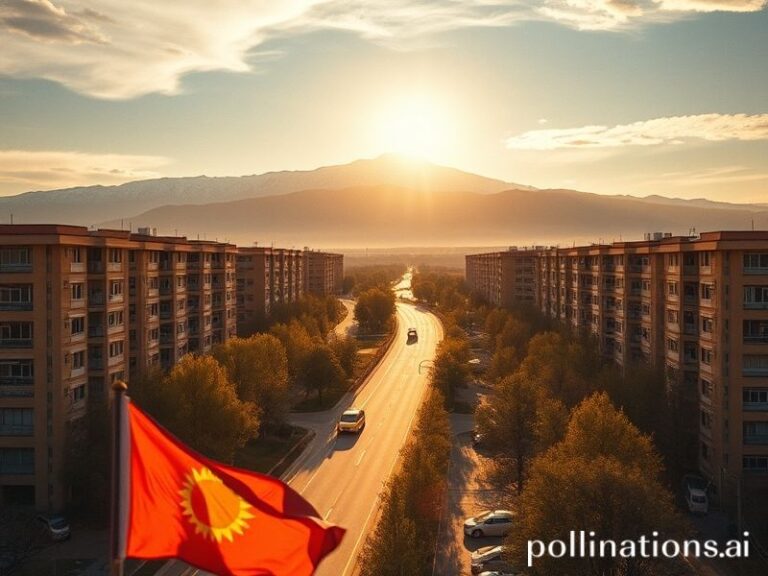Planet-Wide Puberty: How the Gen V Cast Became Earth’s Newest Export Commodity
THE GEN V CAST: A GLOBAL FEVER DREAM DELIVERED BY AMAZON’S CORPORATE METAVERSAL WOMB
By the time the final episode of Gen V dropped, the planet had already consumed it in seventeen languages, three unauthorized dubs, and one TikTok remix where a Brazilian teenager cuts every scream into a samba beat. The cast—Jaz Sinclair’s blood-bending Marie, Chance Perdomo’s metal-contorting Andre, London Thor’s size-shifting Emma, and the rest of the hormone-addled supes—didn’t merely debut; they were instantly uploaded into humanity’s collective hard drive, somewhere between the latest IPCC report and your aunt’s conspiracy-forward WhatsApp voice notes.
Let’s be clear: these actors are no longer American, Canadian, or British in any meaningful sense. They are planetary assets, strip-mined for reaction GIFs by Lagos meme lords and Shanghai marketing bots alike. When Jaz Sinclair winces in Episode 4, a barista in Helsinki feels seen; when Derek Luh’s Jordan hovers mid-gender-swap, a non-binary coder in Buenos Aires updates their Slack status to “living vicariously.” The algorithm doesn’t care about borders; it traffics in raw affect, and the Gen V cast delivers it intravenously.
Meanwhile, world leaders—those who still pretend to matter—were busy issuing statements about “critical mineral supply chains,” blissfully unaware that the real strategic resource is teenage attention span, now monopolized by a show that weaponizes puberty. The Chinese censor’s office trimmed 34 seconds of gore; the Saudis blurred a Pride flag; the French simply added subtitles that sound like a philosophy seminar. Each edit is a tiny act of trade war, fought not with tariffs but with blood-spattered capes.
The actors themselves have become accidental diplomats. During a press junket in Mexico City, Chance Perdomo confessed he’d never tried mole negro; by nightfall, three Oaxacan grandmothers had delivered rival recipes to his hotel, each claiming to cure both homesickness and capitalist dread. In Seoul, Lizze Broadway (playing the shrinks-to-the-size-of-a-tampon starlet Emma) was asked by a K-pop trainee whether American teens really mutilate themselves for clout. She laughed the diplomatic laugh of someone who knows the answer is “yes, but only on camera.”
Back home, Hollywood’s accountants performed the sacred rite of the “global potential earnings” spreadsheet, a ritual involving incense made from burnt residuals and prayers whispered in the direction of Luxembourg tax shelters. The verdict: Gen V is worth more than the GDP of Moldova, but slightly less than the amount Amazon spends annually reminding warehouse workers they’re “part of the family.”
The broader significance? We have now perfected the export of adolescent trauma. Where once the world bought Levi’s and Marlboros, it now imports American daddy issues wrapped in spandex. Every time Marie bleeds from the eyes on screen, a village in Uttar Pradesh learns that power without therapy is just another commodity. The show’s central question—what if the next generation of Übermenschen were too anxious to leave the dorm?—turns out to be universally terrifying. From Berlin techno-basements to Manila call centers, viewers recognize the same existential dread, only ours comes with tuition debt and theirs with typhoon season.
And so the Gen V cast joins the ranks of Sputnik and the iPhone: objects launched skyward that rain back down as culture. We will measure the fallout in therapy bills, cosplay conventions, and the inevitable South Korean remake where everyone is slightly more polite while exploding. By then, Amazon Prime will have rebooted the reboot, the actors will be cameoing in Fast & Furious 19, and we’ll still be arguing on Reddit about whether super-powers are a metaphor for late-stage capitalism or just a really effective skincare routine.
In the end, the true superhuman feat isn’t telekinesis or metal-bending; it’s convincing eight billion people to press play at the same damn time. The Gen V cast pulled it off. Now, please resume your regularly scheduled ecological collapse—Episode 2 is buffering.







